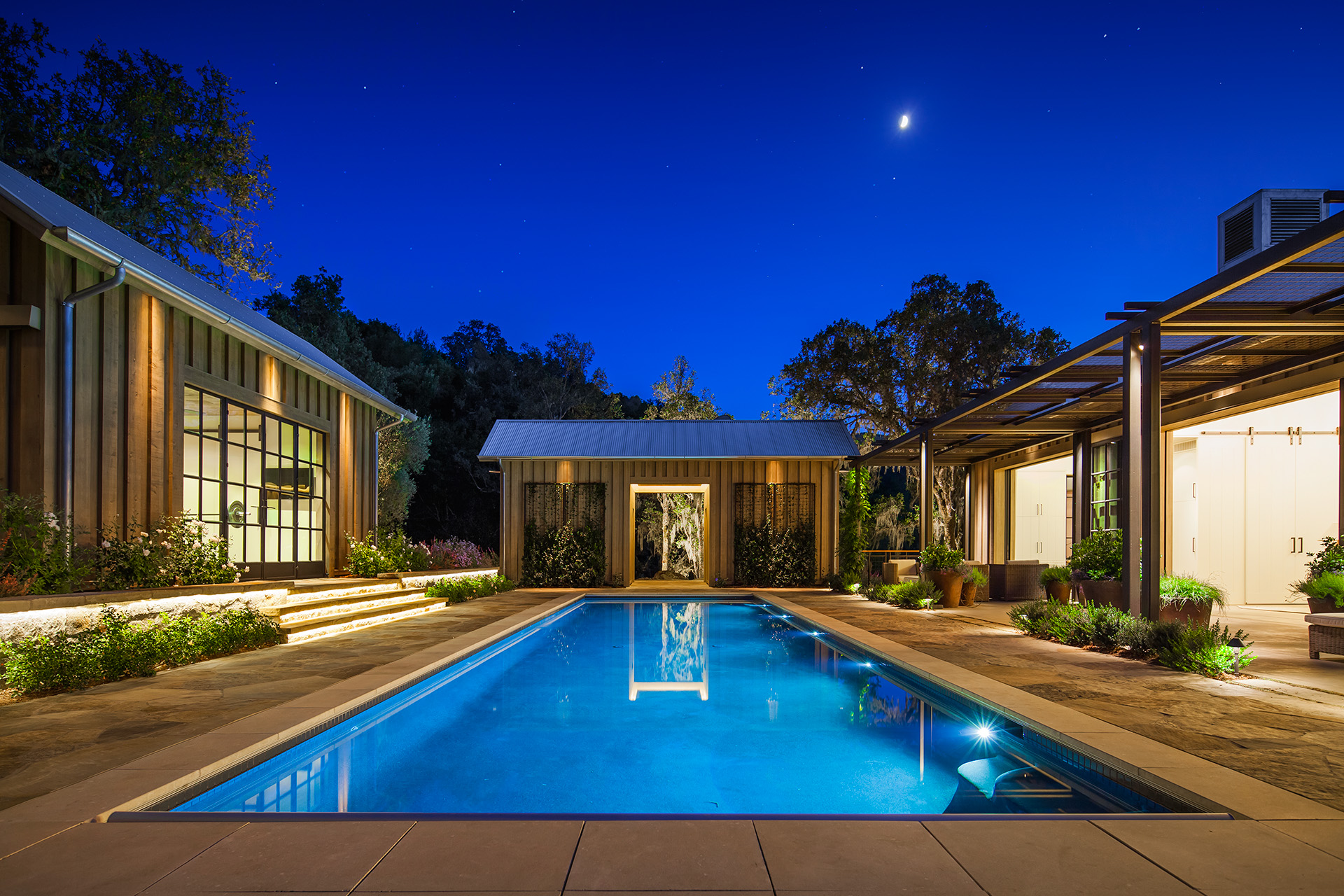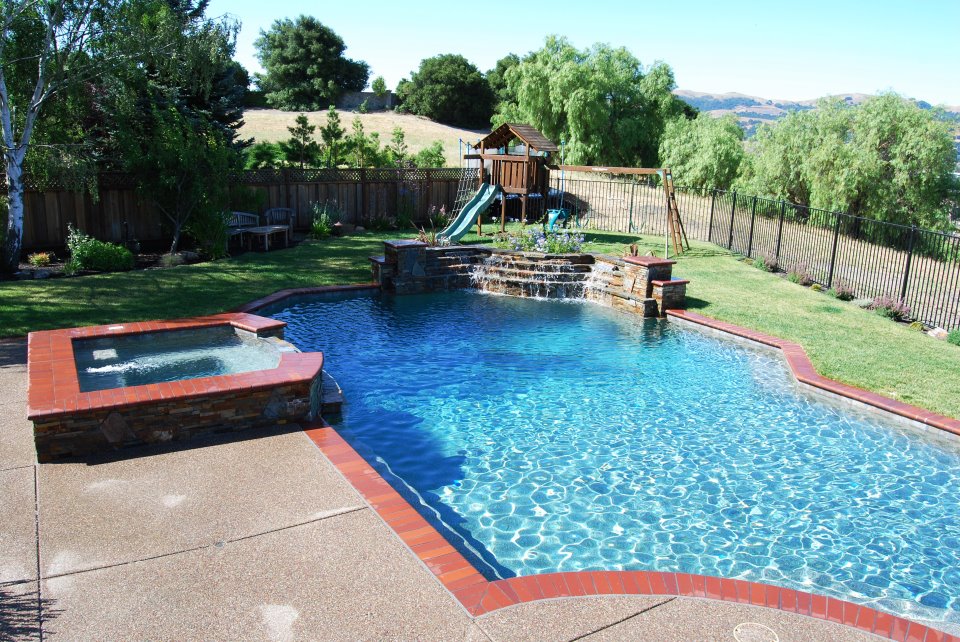
Planning to install an in-ground swimming pool? The first thing you’ll need to do is find a good swimming pool contractor. When interviewing a contractor, it’s common to ask about things like licensing, scheduling and price. However, there are a few questions many homeowners don’t think to ask, but should. Here are five examples:
1. How long will it take?
This is one of the first questions asked on just about any project, but with swimming pools, it’s especially pertinent due to seasonal limits on usage. No one wants to wait several months after their pool’s completion to start enjoying it, so timing is an important consideration. This is why most pool contractors recommend getting the ball rolling on your project in January if you want to be swimming by June.
The timeline for a swimming pool project consists of a series of phases that, in total, can span anywhere from three to six months. Several variables can affect this timeline, including the size of the pool, where it’ll be built and the time of year. After visiting the building site and assessing these factors, a contractor will provide you with an estimated timeline for the project. Beware of estimates (of both time and cost) that seem over-optimistic. If it strikes you as unrealistic, it just might be.
2. Do I need to get a soils report?
A soils report is an analysis of soil conditions at a proposed building site that checks for potentially unsafe or unstable conditions and recommends design criteria that address those conditions. Soils reports are especially important for assessing uneven locations (such as hillsides) and regions with complex soil conditions; however, regardless of where you’re building, it’s a good idea to get one just to be safe. Your pool contractor can arrange for a geotechnical engineer to visit the building site, take some soil samples and prepare a report of their findings. If the contractor you’re interviewing downplays the importance of a soils report, you may want to look elsewhere.

When planning your new swimming pool, be sure to consider all your options for design and features. Photo: Hawkins Enterprises, Inc. ©2020
3. What are my options for pool design and construction?
In-ground swimming pools are not a cookie-cutter affair, a fact that increases their expense but also allows for customization with design and construction. Rather than getting a standard rectangular pool, you can ask your contractor to create a pool design that conforms to the shape of your yard and complements the features of your landscape. You can also add custom features like waterfalls, diving boards, water slides and more.
Likewise, there are many options available for pool construction. For example, rather than building your pool with cement, ask your contractor to use gunite, a dry mix of sand and cement that’s pneumatically blown through a hose, with the water added at the nozzle. Gunite’s unique application process allows the contractor to trim and shape the pool’s curves and angles much more precisely than can be achieved with ordinary concrete. Additionally, to reinforce your pool against earthquakes, you can request to add a fiber mesh material to the gunite mix.
4. What can I do to minimize my pool’s energy costs?
In addition to determining the projected cost of building your pool, you’ll need to consider its impact on your home’s energy consumption. Studies have shown that adding a swimming pool can increase a home’s energy costs by nearly 50 percent, but if you plan smart, yours can be much less. Components like an energy-efficient pool pump and low-voltage LED lighting can significantly reduce your pool’s operating costs, and incorporating automated functions can lower them even more. Furthermore, a solar heating system can be a great investment for minimizing (and even eliminating) the cost of heating your pool.
5. What kind of warranty can I expect?
A swimming pool should come with a couple of different warranties. First, there’s the warranty from your contractor that covers their workmanship. Then, there’s the warranty from the manufacturer of the pool equipment (pump, lights, heater, etc.). Your contractor should be able to explain how each warranty works and what it covers.
If you’re interviewing multiple pool contractors (which you should), make sure to compare each one’s workmanship warranty. In most cases, a contractor’s warranty serves as a reflection of their confidence in their workmanship. It’s not uncommon for a quality pool contractor to warranty their work for 10 years, so if the contractor you’re interviewing only offers a one-year warranty, it should be a red flag.
Find a Diamond Certified swimming pool contractor in your area
